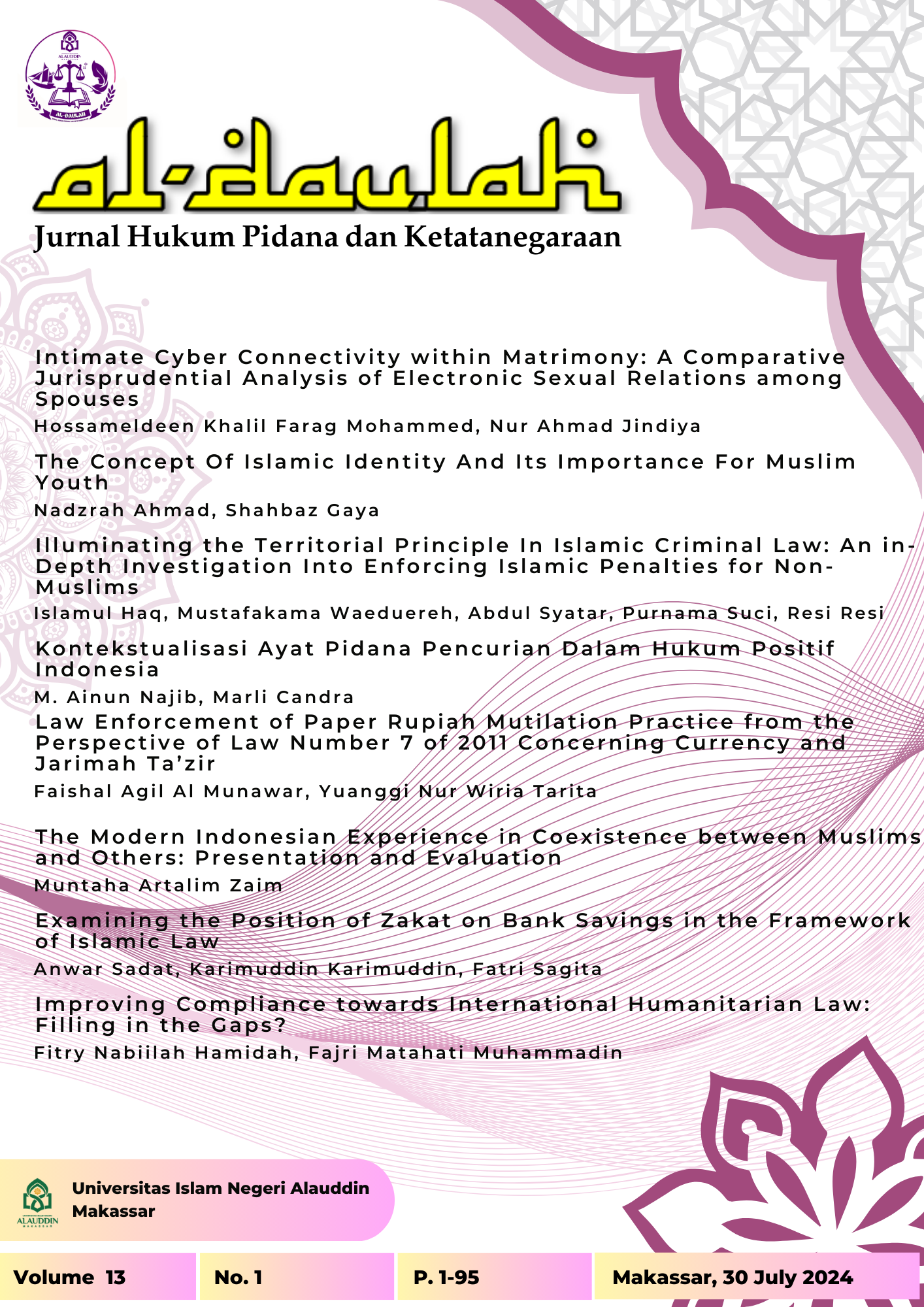PEREMPUAN DAN KEKERASAN DALAM RUMAH TANGGA: DISKURSUS HAM DALAM KARYA NAWAL SA’DAWI
Abstract
Domestic violence that commonly makes women as the victims is a violation of the human rights of women as worthy human beings. The human rights discourse found in Nawal Sa'dawi works has provided a framework of social criticism of the reality of domestic violence that takes refuge in justification in the name of religion. Human rights discourse that is contained in Nawal Sa'dawi's works should not be trapped in the literary texts but must be transformed in context both in domestic households in particular and in social environment in general.References
Arif, Saiful dan Eko Prasetyo, Lenin: Revolusi Oktober 1917, Yogyakarta: Resist Book, 2004.
Douglas, Jack D. & Frances Chaput Waksler, Teori-Teori Kekerasan, Jakarta: PT. Ghalia, 2002.
Ihromi ,T. O., Bunga Rampai Sosiologi Keluarga, Jakarta: Yayasan Obor Indonesia, 1999.
Lindsay, A. D., The Modern Democratic State, New York: Oxford University Press, 1955.
Pasalbessy, Jhon D., “Dampak Tindak Kekerasan terhadap Anak dan Solusinya,” Jurnal Sasi Universitas Pattimura Vol. 16 Juli-September 2010.
Rahayu, Rizki, “Novel Sastra: Terjemahan Matinya Seorang Mantan Menteri Nawal Sa’dawi,” http://rizqi-rahayu.blog.ugm.ac.id. (diakses pada 10 Januari 2018)
Sa’dawi, Nawal, “The Heroine in Arab Literature” dalam The Hidden Face of Eve, Women in the Arab World, trans. and ed. by Sherif Hetata, London: Zed Press 1980.
………., Perempuan dalam Budaya Patriarki, Yogyakarta: Pustaka Pelajar, 2001.
………., Perempuan di Titik Nol, Jakarta: Yayasan Obor, 1992.
………., Tak Ada Tempat Bagi Perempuan di Surga, Yogyakarta: Pustaka Pelajar, 2003.
Salleh, Kamaruddin, “Usrah dan Dakwah dalam Gerakan-Gerakan Islam di Malaysia”, Ahmad Sunawari dkk., Issues & Challenges of Contemporary Islam and Muslims, Bangi: Departmen of Theology and Philosophy UKM, 2009.
Wahid, Abdurrahman, Muslim di Tengah Pergumulan, Jakarta: Leppenas, 1983.
Wieringa, Saskia Eleonora, Gender dan Gerakan Perempuan, Jakarta: Garda Budaya, 1999.
______
The authors of a work hold the copyright and grant the Al-Daulah: Jurnal Hukum Pidana dan Ketatanegaraan the right of first publication. The work is also licensed under the Creative Commons Attribution License (CC BY 4.0), which enables others to share the work while acknowledging the authorship and initial publication in the journal. The authors can make separate contractual agreements for the non-exclusive distribution of the published version of the work, such as by posting it to an institutional repository or editing it for a book, with an acknowledgment of its initial publication in this journal. Authors are allowed and encouraged to post their work online, such as in institutional repositories or on their website, before and during the submission process. This can lead to productive exchanges and greater citation of the published work.


